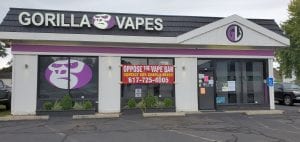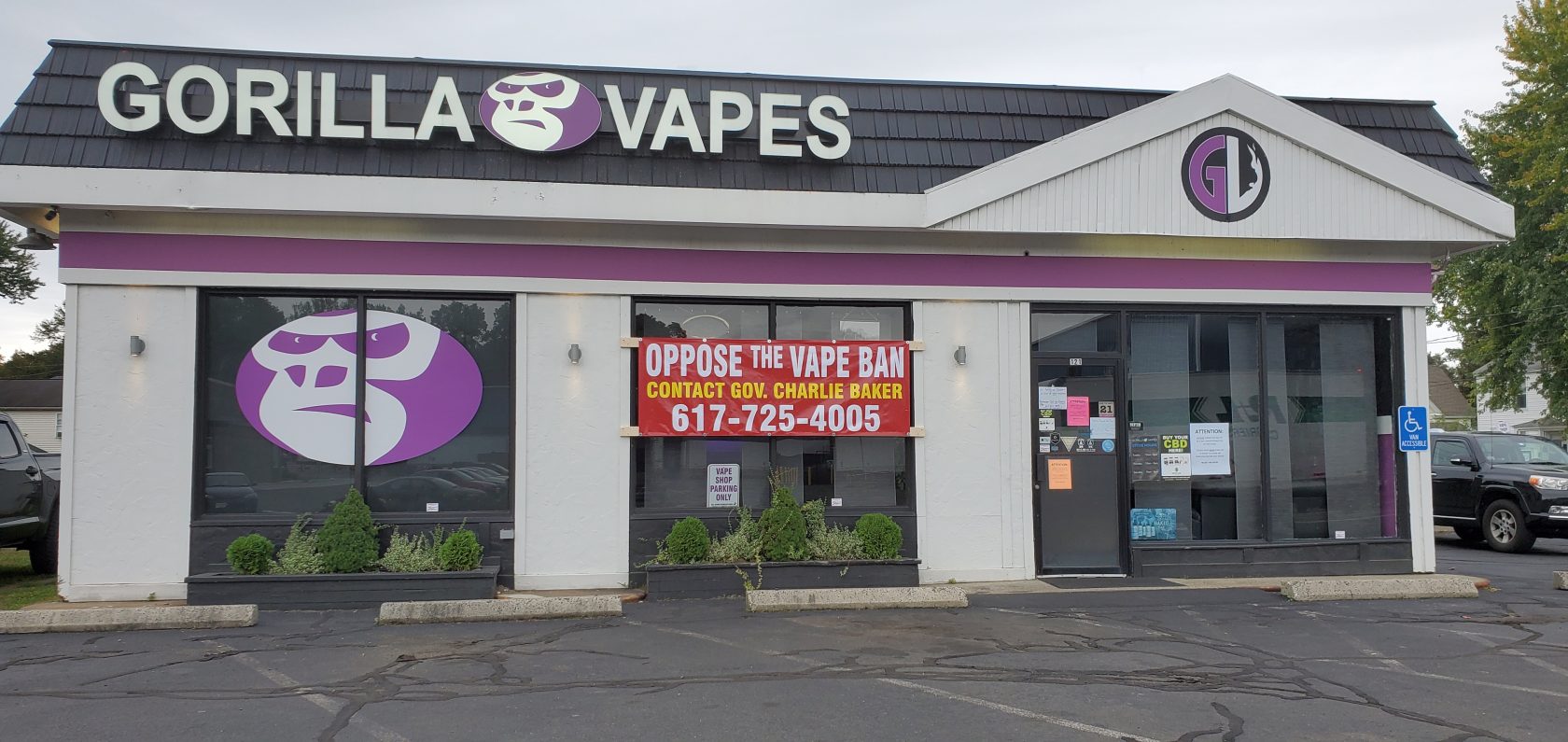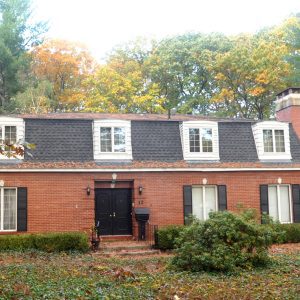
Gorilla Vapes is one of several vape shops in Westfield and Southwick that has had to close during the ban. (Photo by Peter Currier)
BOSTON- A federal judge denied a temporary restraining order on the state-wide ban on the sale of vape products Friday amid protests and lawsuits from shop owners who said that the ban is illegal and could shutter their businesses.
District Judge Indira Talwani denied the restraining order amid two separate lawsuits challenging the ban, but said that a hearing would take place on Oct.15 where she would review a possible preliminary injunction. The ban, first announced by Gov. Charlie Baker last month, is set to last until Jan. 25, 2020 if it is to remain as is and is not extended.
Talwani’s decision came on the heels of a protest in Boston in which vape shop owners and employees stood outside the Massachusetts State House.
One man at the protest, Afzzal Mohammed, owns No-Limits Vape and Smoke Shop in Westfield. His shop remains open, for now, but with a distinct lack of vaping products on the shelves. He said that his business has dropped by about 80 or 90 percent. He and his wife and co-owner, Ashra Fathima, said that they do not expect the store to survive if the ban goes the full four months.
“It’s going to put them out of business,” said Craig O’Rourke, an attorney representing several Eastern New England vape shops in the federal lawsuits. “It’s a death sentence. They’re trying to figure out what to tell their families and their employees.”

Afzzal Mohammed of No Limits Vape and Smoke Shop, shortly after the Health Department served the ban notice and they began emptying their own shelves. (Photo by Peter Currier)
Mohammed and Fathima’s shop remains open because they sell other products like tobacco and smoking accessories, but others in Westfield have not been as lucky. Gorilla Vapes on Elm Street has had its doors closed since enforcement of the ban began. Vaping products made up a vast majority of what they sell.
The ban in Massachusetts came as reports of mysterious lung illnesses appeared across the United States. Although vaping in its current form has been widespread for decades, these illnesses began popping up in the last year. Opponents of the ban, including several shop owners in Westfield said that the illnesses were likely caused by illegal, black market THC vaping cartridges that are cut with vitamin E to make them appear more full.
The ban includes the legal and regulated versions of the THC cartridges in Massachusetts, which were sold in recreational marijuana dispensaries since those stores began opening last year.
Besides the livelihoods of their own businesses, the shop owners are concerned that their customers may turn back to cigarettes in the absence of vapes. Chris Kasperek, owner of Ace Vapor in Westfield, said that many of his customers claim to have quit cigarettes by replacing them with e-cigarettes and vapes.







